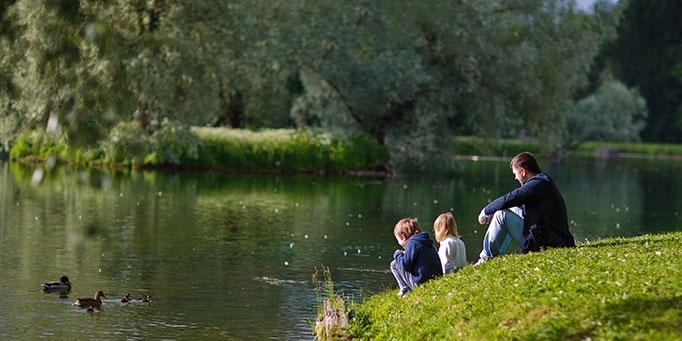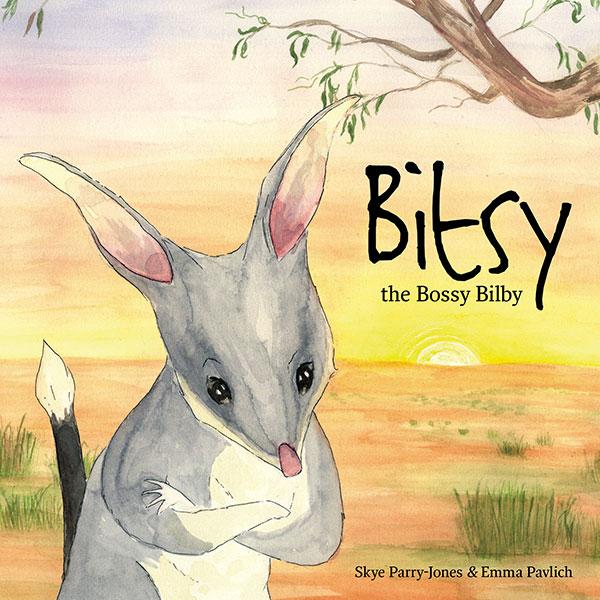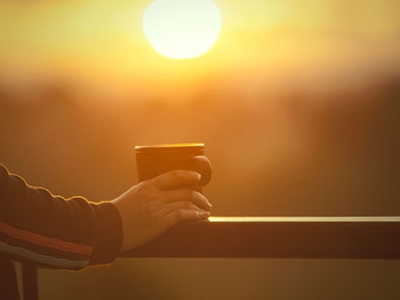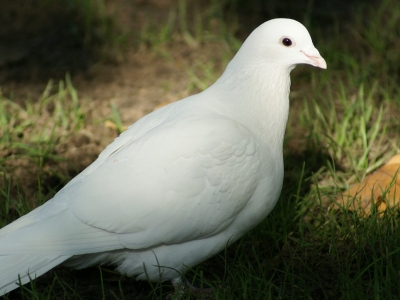
When it all gets too much, step outside!
Here’s a simple, proven strategy for reducing anxiety.
Eighteen months ago, when news of the Covid-19 pandemic started travelling around the world, I found myself researching the history of the Spanish Flu, searching to see what kind of impact it had on the population of Tasmania, where my family lives. I was, like many others, trying to grasp what life might be like for us in the year ahead.
What I learnt from my research then—and has since proven to be true—is that an island is a good place to live during a pandemic. Across the world, as countries struggle to keep borders closed and boundaries from being crossed, a water moat becomes exactly the kind of natural quarantine measure that humans can’t replicate.
Even a ‘moat’ can’t keep out suffering
We haven’t had community transmission here since April 2020 and yet even Tasmania hasn’t escaped the impacts of the pandemic. The tourism industry, which contributes about $1.4 billion to Tasmania’s GDP, has been hit: cafes, Airbnbs and animal parks sit eerily quiet.
Closing our borders has effectively kept out the virus, but it has also kept families apart. Many Tasmanians have family interstate and months of separation have been difficult for everyone. Last year, friends of ours waited nine months for borders to open so they could fly to Melbourne to visit their children’s grandfather who had been battling cancer. Eventually, they were able to make the trip but arrived only hours before he passed away. Many others across Australia have similar stories of loss; many are wondering when they will be able to see their families again.
There are other struggles facing families here and around the nation. In many cities it is increasingly difficult to buy or rent a house. With the cost of housing increasing, food insecurity is also on the rise. Data from a recent University of Tasmania survey found that in the last eighteen months, one in four Tasmanians has needed to access food charities, three times more than before the pandemic.
Of course, things are much worse in other places around the world. But even for those of us living on a Covid-19 free island, at the bottom of the world, the suffering is inescapable. The good news is that we have access to effective vaccines. But with 15 million Australians back in lockdown and the Delta variant continuing to spread, the truth is, no-one knows when the worst of this crisis will be over.
And that makes parenting in this season difficult. We are bringing up children in a world that is hurting. We are trying to prepare them for a future we can’t possibly imagine.
In this context, few of us, no matter where we live, can escape feelings of grief, anxiety or hopelessness. As parents, there is often little time between cooking dinner and getting the baby to sleep, to even read the news notifications that keep popping up on our smartphones, let alone process the weight of them.
Step outside!
However, when the world feels overwhelming, and the future feels shaky, there is something simple we can all do. We can step outside into the natural world. We can take an afternoon walk around the block. We can take our children to a leafy reserve and watch as sibling rivalries disappear and they all become engrossed in their play. We can sit outside on our front steps with our pyjama-clad pre-schooler and read stories as the sky changes from blue to pink. Time outside changes our perspective. It helps us find peace in a troubled world.
There is plenty of research to support this idea. Studies have shown that just looking out onto a green space can be beneficial, with evidence that patients in hospital rooms with a view out to trees recover faster than those whose rooms look out onto a brick wall. Research from Japan has proven that time spent walking in a forest reduces the presence of stress hormones in our blood. And a global review of research determined that spending even as little as ten minutes a day outside could reduce feelings of anxiety.
Around the world, researchers are continuing to study the benefits of ‘green time’ for our health and wellbeing. But the idea that time outside can calm us, of course, isn’t new. Thousands of years ago, the Psalmist spoke of how the Lord used nature to restore his soul:
The Lord is my shepherd, I lack nothing.
He makes me lie down in green pastures,
he leads me beside quiet waters,
he refreshes my soul. (Psalm 23:1–2)
When speaking about anxiety, Jesus told his followers to look to the flowers in the fields and the birds of the air (Matthew 6:25–34). Earlier this month, I was reading through the Gospel of John, and I noticed that on the day Jesus fed the five thousand, he had been speaking to them in a place ‘where there was plenty of grass’ (John 6:10). Two thousand years ago, Jesus took people to green spaces to teach them about the love of his Father.
In 2021, time in nature continues to offer us the same invitation. Being outside, with the people we love, reminds us that our Creator made a good world, beautiful and abundant. The wattle in bloom and the kookaburras laughing at dusk tell us of his loving provision: ‘The Lord is good to all; he has compassion on all he has made’ (Psalm 145:9). And when we wake early and watch the sun rise in the sky, we’re invited to meditate on the truth that the true Light has come and this darkness is only temporary.
Because of the Lord’s great love we are not consumed,
for his compassions never fail.
They are new every morning;
great is your faithfulness. (Lamentations 3:22–23)
---
Hannah Alexander is a teacher, nature-playgroup facilitator and a mum of three. Hannah is passionate about helping families deepen their connection through simplicity, nature and play. She writes at www.ouryearoutdoors.com.

Bitsy the Bossy Bilby
Through this beautifully illustrated story, we learn that God is the boss and everything works according to his perfect plan.
For more articles from Growing Faith, subscribe to our monthly e-newsletter.
To hear about the latest books and resources from Youthworks Media, subscribe here.








